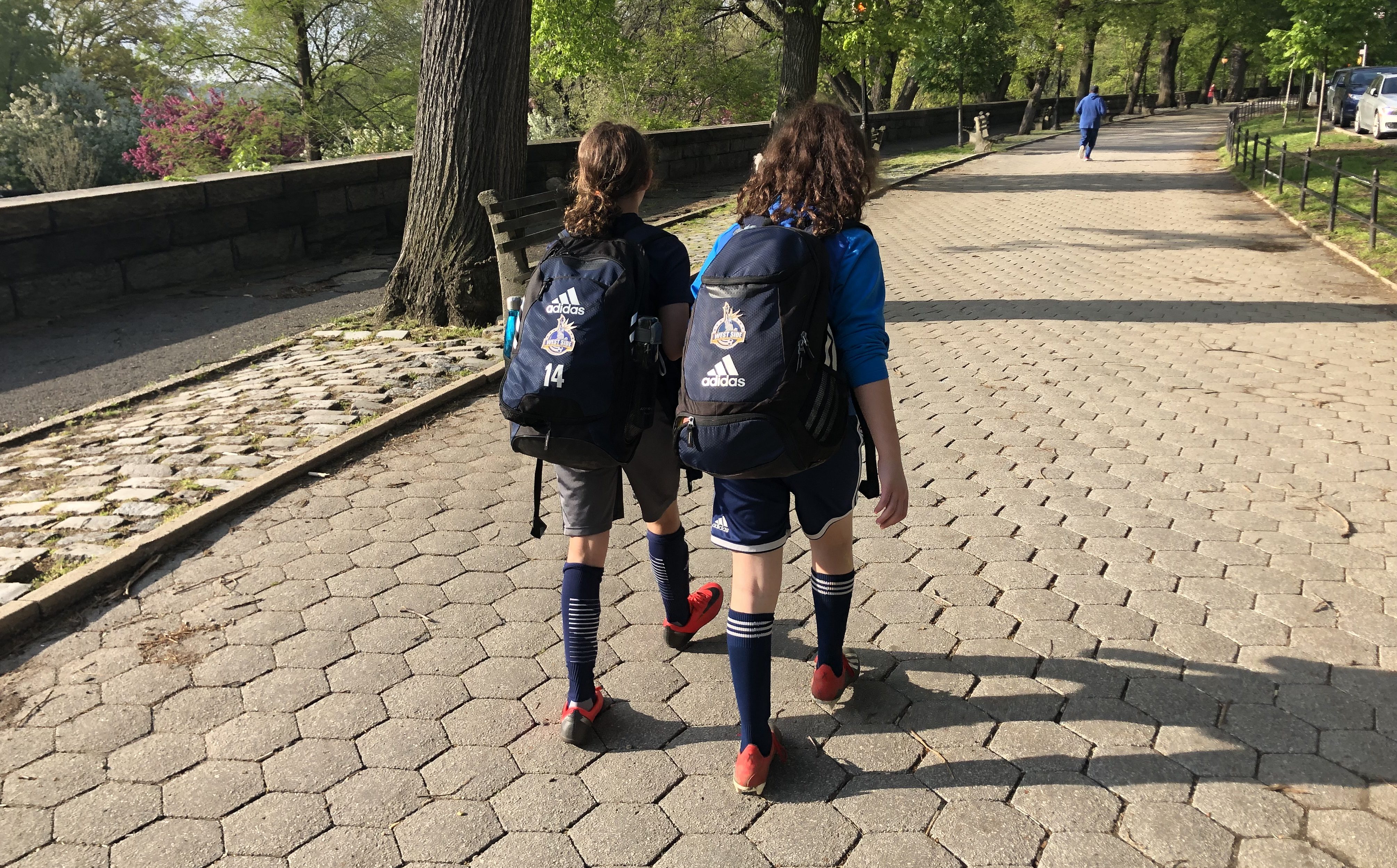We lost our soccer game on Saturday. We drove far into Connecticut and played at dusk in the whipping wind, only to end our year-long quest to win the State Cup. We lost to a team we could have beaten. We missed lots of opportunities to score. The girls came off the field with tears streaming down their faces. Losing was the best thing that could have happened.
We should want our kids to lose. Why? So that they learn how to recover from losing. Everyone is obsessed with how we instill resilience and grit in our kids. You know how we instill resilience and grit? By letting them lose. By allowing them to fail. By giving them a chance to fall down. AND, by being loving and supportive adults who helps them process the loss and get them back on the road towards growth.
As parents, our job, counterintuitive as it may seem, is to put our kids in situations where they face setbacks (on the soccer field, at a chess tournament, in the classroom) so that when the stakes are low, they practice falling and getting back up. The longer we wait to expose them to failure, the further they have to fall, the more shocking the experience will be for them and the higher the stakes for their futures.
Imagine if your kid could develop the skill at 9 or 10 of saying: “OK, this loss feels really big right now and I’m really [disappointed, sad, frustrated, angry, ashamed] but I know that these feelings won’t last forever. I can face them and then move beyond them.” That’s where the resilience comes in – resilience comes from having strategies to make hard stuff feel less overwhelming, from having the ability to say: “This is what I feel now, and it sucks, but tomorrow I’m going to feel something more manageable. And when I feel that way tomorrow, here are the things I can do to move forward.”
So when your daughter loses a soccer game this season, because hopefully she will, after you give her a hug and listen to her cry/vent/shout without immediately telling her everything will be fine, here are two questions you should ask her.
- What is one thing she felt proud of in the game? (This will give her a chance to practice expressing positive things about herself which, FYI, becomes harder and harder for girls and women as they get older.)
- What is one thing she would do differently next time? (Let her TELL YOU what she thinks, rather than YOUR TELLING HER, and you will see how much she understands about her own play.)
This skill of constructive self-reflection is the single most important skill she will need for the rest of her life. How much better would we all be if we could honestly assess where we did well and where we need to do better AND THEN, move forward without self-flagellating/ falling apart/ assuming the fetal position? Your daughter should lose, should do badly on a test, should get an answer wrong, because it is in that journey of understanding where she went wrong that she grows stronger and more self-knowing.
As my fellow coach and I said to our team on Saturday, there is no group of girls with whom we would rather lose than this group. We explained that they will likely remember this loss for much longer than they would have remembered a win and that we were so happy to be there with them in defeat. They looked at us stunned and then slowly began to smile as understanding dawned: grown ups can believe in you, can be proud of you, can love you, even in defeat. We then huddled up together as the sun was setting over the windy turf field, the tears already dry on the girls’ cheeks, and we sang our team cheer one more time shouting into the cold air, jumping up and down. We got in the warm car, ate some chocolate and sang karaoke on the long car ride home.
The next morning, as we prepared for our game that day, I asked the girls those two questions: What are you proud of from yesterday? What would you like to do differently today? They each knew exactly where they’d made mistakes and what they needed to do differently for the next game. Those girls then went out on the field and destroyed the other team. To a girl, they played better than I’ve ever seen them play. They won their game because they had failed and had recovered from that failure. Overnight they grew back stronger because they carried with them the skill of honest self-reflection born of defeat. They were more powerful because they had lost.







